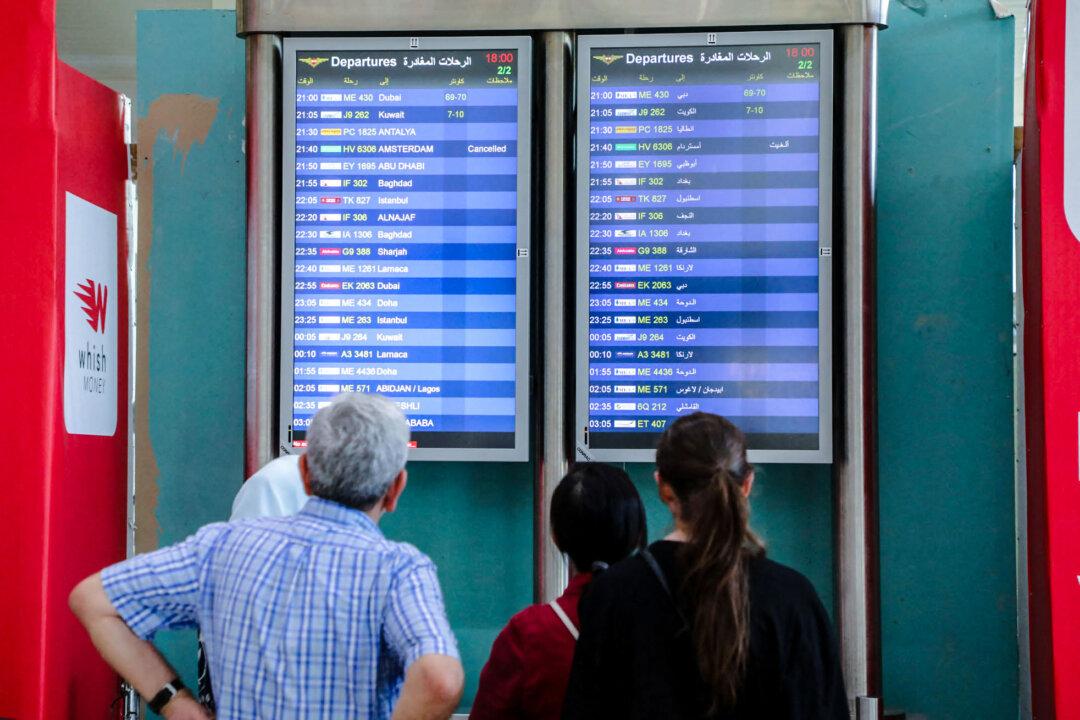The U.S. government has updated a travel advisory urging all citizens in Lebanon to depart while commercial flights are still available amid signs that tensions between Iran-backed Hezbollah and Israel could escalate further.
In an update issued on Sept. 21, the U.S. Department of State stressed that the “unpredictable nature” of the ongoing conflict between Hezbollah and Israel, and recent explosions throughout Lebanon, including in the capital city of Beirut, may significantly hinder Americans’ ability to safely leave the country.





